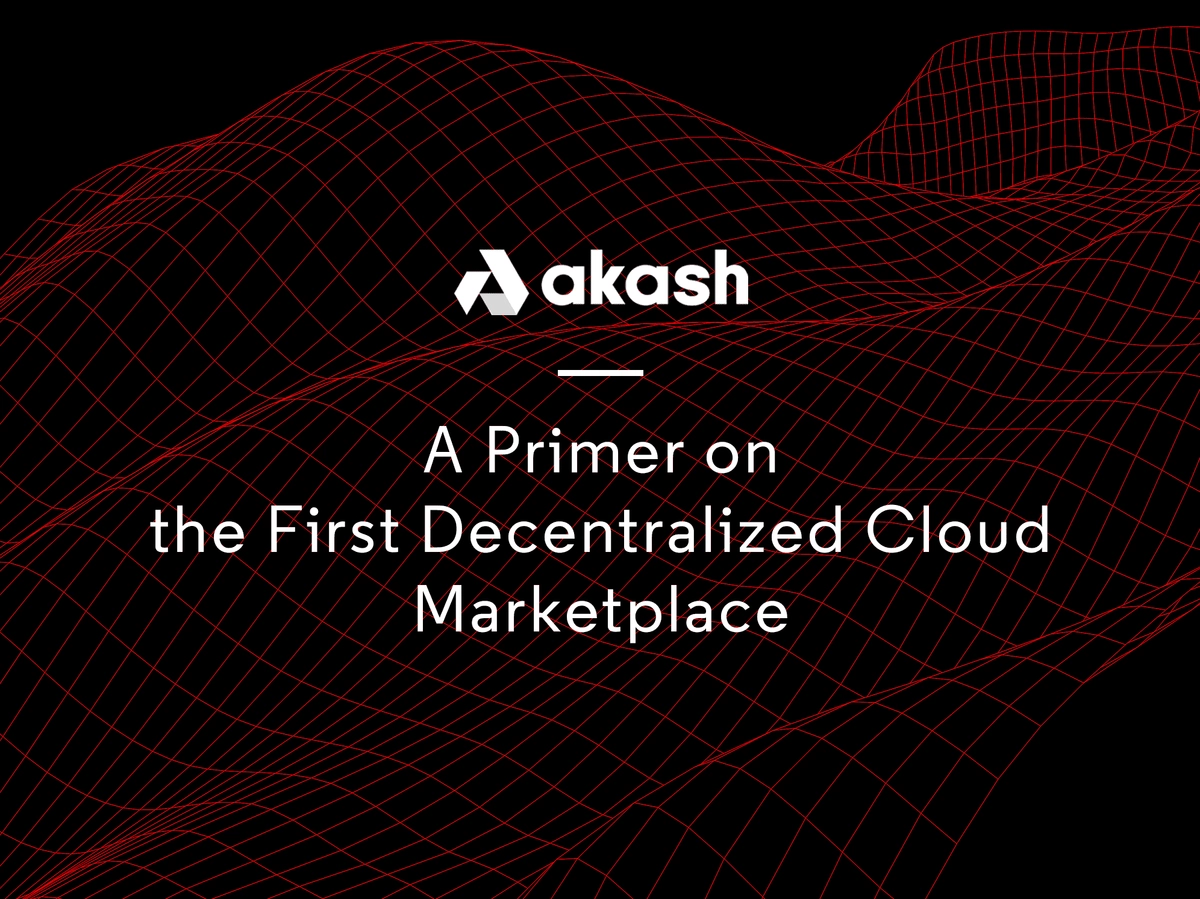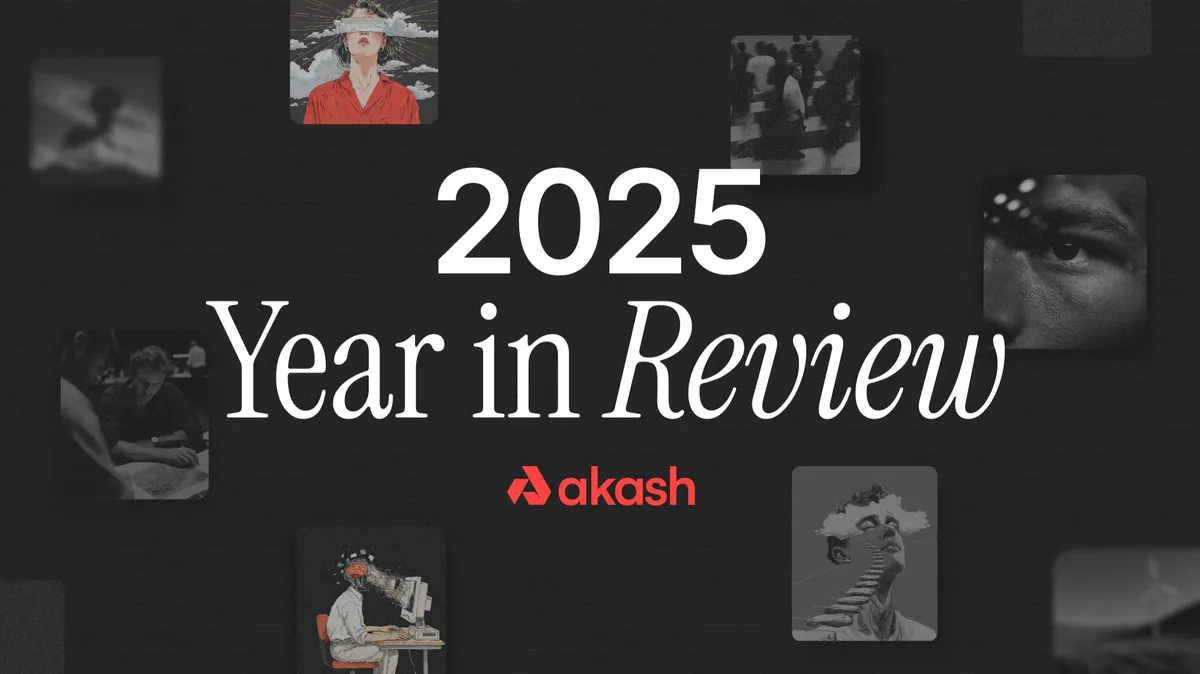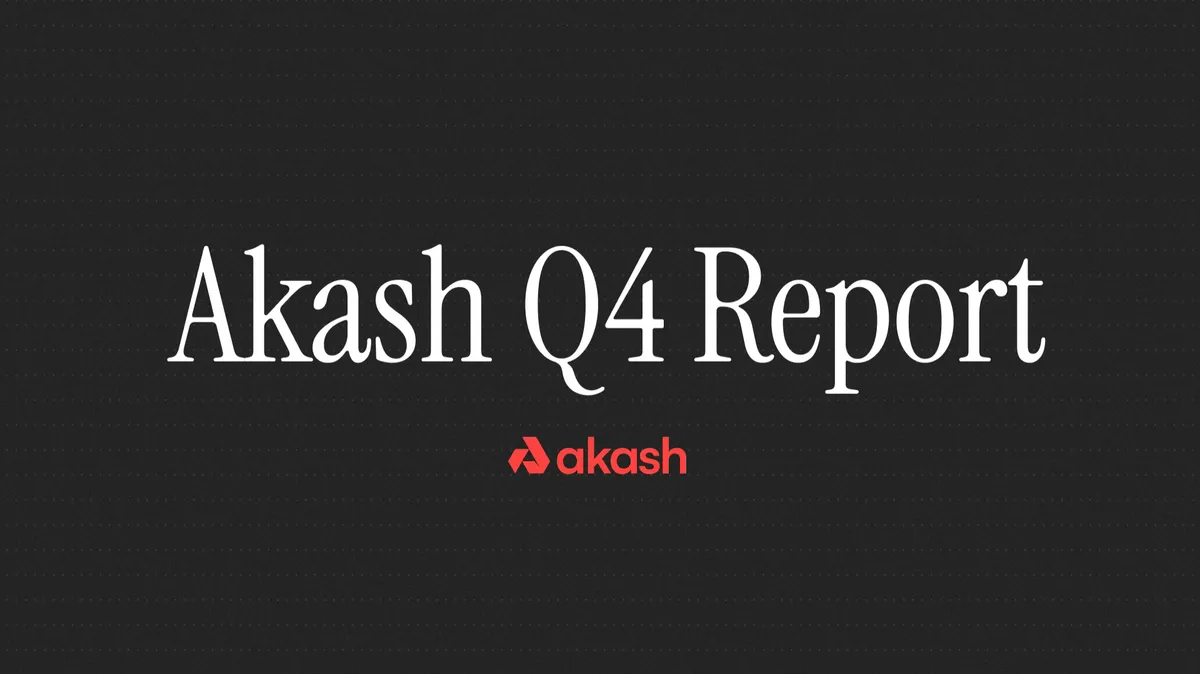
The Market Landscape for Cloud Computing
_____
The cloud computing industry is expected to exceed $210 billion by 2022. We’re seeing more of the ways we connect and collaborate move to the cloud.
With more of our work and play moving online, this accelerated growth is tied to increased consumer demand for throughput and content, a global surge of smartphones, rapid development of web and mobile applications, and high costs of developer operations on-premise server management.
The leading centralized cloud service providers (CSP)–Amazon Web Services (AWS), Google Cloud, Microsoft Azure, and Alibaba Cloud–dominate with 71% market share. AWS alone is triple the size of Microsoft Azure, the second largest CSP.
Cloud computing is a concentrated and oligopolized market with pricing inefficiency and anti-competitive practices like strip-mining, where a big CSP copies the products of a smaller cloud company (already offered on its platform) and sells the products, often alongside the copied product.
With the market oligopolized, innovation, choice, and flexibility are stifled, and current services come at a high recurring cost with lock-in agreements.
For greater access, flexibility, efficiency, and security, the cloud needs to evolve to a decentralized infrastructure. New innovations, such as serverless technology, are shifting the paradigm in computing, freeing developers from set-up and server management, and enabling them to manage the resources needed to run applications.
Within this market context, there are 8.4 million data centers with an estimated 85% of server capacity underutilized.
Akash Network’s Solutions
_____
![]()
Akash Supercloud
As the first decentralized alternative to the cloud oligopoly, Akash Network is developing Supercloud, the world’s first and only decentralized cloud computing marketplace, enabling any data center and anyone with a computer to become a cloud provider by offering their unused compute cycles in a safe and frictionless marketplace.
Akash Supercloud enables organizations to access the 85% of server capacity currently underutilized at 8.4 million data centers, and on individual servers.
The Supercloud platform achieves these benefits by integrating advanced containerization technology with a unique staking model to accelerate adoption, built on Tendermint and Cosmos. The Akash Token (AKT) is a utility token used in the platform to achieve economic security, incentivize early adoption, and normalize exchange rates.
Akash Supermini
Akash also develops Supermini, a powerful portable supercomputer. Supermini enables individuals to become cloud providers on Akash from their home or office. Supermini owners can deploy applications, run a machine learning workload, and offer Supermini’s unused compute on Akash to earn income.
More than ever, we need a decentralized, permissionless, and open cloud where people become participants, and not just users.
Built on blockchain technology, Supercloud and Supermini also provide organizations and individuals sovereignty and privacy over their data.
Competitive Advantage
_____
How Akash Differs from Cloud Service Providers
Through Akash’s platform, developers can easily and securely access cloud compute at 10x lower cost than the current market providers (AWS, Google Cloud, Microsoft Azure, and Alibaba Cloud).
-
Efficient
- Pay for what you need, when you need it
- Sell excess capacity you are not using
-
Compatible
- Easy to adopt (built for mainstream)
- No vendor lock-ins
- Compatible with existing cloud applications
-
Price Advantage
- 10X less than market offerings for developers
- Up to 4x more for providers of compute
-
Secure
- Encryption at rest, run time, transit
- Web of trust model (PGP) through accreditation
- Optimized for node failure
How Akash Differs from Decentralized Cloud Companies
Existing blockchain projects have high friction points for adoption without advantages such as cost. They also serve a small or unknown market size.
- Golem is a supercomputer with on-chain computing. Their solution serves a small addressable market, requires users to learn a new language, and does not have cost advantages.
- Dfinity is focused on smart contracts, which have limitations.
- Blockstack is built on top of Bitcoin and is not suitable for compute.
Akash’s technology is developed to address general compute and broader market use cases. The platform is positioned to serve the mainstream market, and addresses growing needs in the machine learning market. If an application runs on existing cloud service providers like AWS, Google Cloud, or Azure, it can run on Akash.
Primary Customers
_____
Akash is currently focused on serving high-growth companies with data intensive workloads, and will expand to support lower growth organizations with a diverse set of workloads. The company’s primary market is growth stage machine learning organizations, including artificial intelligence and deep learning companies.
Escalating cloud costs from the major cloud service providers make running machine learning, deep learning, and artificial intelligence workloads increasingly expensive and cost-prohibitive. Cloud costs have a compounding annual growth rate of 43.6% through 2022, and with 25% of machine learning/AI companies’ revenues spent on cloud resources, managing costs is critical to growth.
During the global pandemic, these workloads have become increasingly expensive and cost-prohibitive for startups, academic institutions, researchers, and clinicians who need to accelerate critical research to fight COVID-19, and develop life-saving treatments.
10x lower in cost, Akash Supercloud is a faster, more secure, and lower cost alternative to cloud service providers.
Akash Token (AKT) Economics
_____

Akash’s economic model uses a native currency, Akash Token (AKT) to solve for volatility (one of the biggest challenges for adoption in crypto), while ensuring economic security of the platform’s public blockchain. The model bootstraps early supply by subsidizing using inflation (i.e., borrowing from the future), and activates an incentive structure that not only fairly distributes, but will unlock network effects to accelerate growth.
The Akash Token (AKT) is a utility token that performs three main functions: Resolve, Reward, and Reserve.
Resolve
Akash relies on a blockchain where a set of validators vote on proposals. Each proposal is weighed by the proposer’s voting power, which is the total tokens they staked and the tokens bonded to them (stakers can delegate voting power to validators).
Reward
Providers on Akash stake tokens to subsidize operating and capital expenditures. Stakers are rewarded proportional to the number of tokens staked, the length of lockup time, and the overall tokens staked in the system. Lock up times can vary anywhere from one month to one year. Flexibility in lockup encourages stakers that stake for shorter periods (bear markets), in a self-adjusting inflationary system that is designed to optimize for lower price pressure during bear markets.
Reserve
Fees on Akash can be settled using a multitude of currencies, however, the market order book uses Akash Token (AKT) as the reserve currency of the ecosystem. AKT provides a novel settlement option to lock in an exchange rate between AKT and the settlement currency. This way, providers and tenants are protected from the price volatility of AKT expected to result from its low liquidity. This paper also presents a method “Transaction Ordering using Consensus Weighted Median” to establish exchange rates without the need for an oracle.
Founders
_____
Akash was founded by Greg Osuri and Adam Bozanich, globally recognized open source developers and among the top 20 programmers worldwide for authoring open-source libraries adopted by organizations including Ubuntu, HashiCorp, and Kubernetes. They lead a team of renowned open source and blockchain developers, and seasoned experts from leading technology platform companies.

Greg Osuri, CEO
Prior to Akash, Greg built information technology (IT) infrastructure at IBM early in his career and founded AngelHack, the world’s largest hackathon organization with over 150,000 developers across 50 cities worldwide.
A renowned open source, distributed systems, and blockchain developer and applied economist, Greg’s libraries regularly trend among top 5 (globally) in the Golang space, which are open sourced on GitHub. He is the author of UI Progress and Amazon RDS Cookbook — widely used DevOps toolkits with more than 25 million downloads.
Greg has helped launch multiple developer companies including Firebase (acquired by Google). He is a frequently featured speaker, and was instrumental in the passing of California’s first Blockchain law, providing the first expert-witness testimony at the Senate.

Adam Bozanich, CTO
Prior to Akash, Adam led software development at WeWork, Symantec, One King’s Lane, and Marketron. Before that, he worked as an engineer and developer for music monetization platform Topspin, which was acquired by Apple in 2014 following an initial acquisition by Beats.
Adam holds a U.S. patent for the invention of network protocol fuzzing, a security analysis methodology that dynamically tests a system’s resilience to protocol abuse.
Investors
_____
Akash partners with thought leaders and global organizations across technology and venture capital to materialize the vision of The Unstoppable Cloud.

Partners
_____
The Unstoppable Cloud movement enables the creators of the future to build with more freedom, and to give people control over their data.
The principle behind The Unstoppable Cloud is fully sovereign cloud infrastructure that cannot be challenged or taken down by adversaries and hackers.
Akash partners with organizations who share a vision for an open, safe, and unstoppable cloud that unlocks capabilities for the data-driven technologies of the future.



